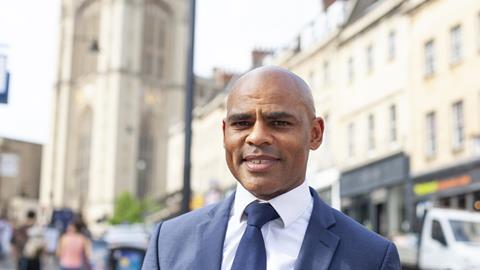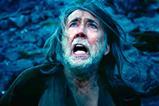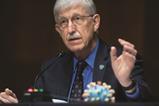The Mayor of Bristol tells Sam Hailes how the parable of the talents is inspiring him to fight poverty, and why he no longer views doubt as a dirty word
The Mayor of Bristol found himself in an awkward position last summer. Marvin Rees was visibly delighted that the statue of slave trader Edward Colston, which had stood in the city centre for 125 years, had been torn down by Black Lives Matter protestors and thrown into the harbour. But given his position as mayor, he also told reporters he could not condone criminal damage.
When I put this disparity to the 49-year-old, he shrugs. “Yeah, absolutely, but we live in a complicated world, and sometimes two things can be true at the same time.” He often rebuffs my binary thinking, simply stating “it is both” when I ask him whether he was proud to become the first black mayor of a major European city in 2006, or disappointed that it took so long for the record to be set.
Rees has learned to embrace complexity and paradox, especially when it comes to his faith. He became a Christian aged ten at an evangelical crusade, and was taught “certainty is the mark of faith” at university. But he no longer believes that, and is similarly bothered by the false dichotomy pedalled by a preacher he just caught on TV who declared: “Don’t trust your senses. Trust the word of God.”
Trite Christian cliches won’t cut it for Rees. Instead, the true mark of faith is action. “Faith has to do something,” he tells me. His top priority right now is building affordable houses – what he calls “the single most significant policy tool for social outcomes”. The parable of the talents inspires him to “try to make good things happen for my fellow human beings”, a line that might appear platitudinous in print, but is delivered with such sincerity that I’m almost ready to start canvassing for him.
MY FAITH HAS GIVEN ME RESILIENCE, AND A SENSE OF PURPOSE
The Labour mayor is refreshingly unapologetic when it comes to speaking about how his Christian faith motivates him (“I’m actually quite belligerent about it”). When I ask him about Bristol’s churches, he lists four separate congregations he’s had personal experience of, and praises local Christians for their devotion to serving the city. Nowadays he’s settled at Hope Chapel, an independent free church, where the morning service is “borderline chaotic, because the kids are running everywhere”. Not that he’s being critical: “It’s nice for a parent because you can just relax…and they do a great breakfast before the service!”
Rees seems a little irked when I refer to him as a politician. His CV is certainly broad: his first job was with Tearfund, he completed a leadership training programme at Yale University, has worked as a BBC broadcaster, and even spent time working with Tony Campolo’s Sojourners organisation in Washington DC. “And I’ll do something else at some point,” he says, my research later confirming he won’t stand for re-election in 2024.
Until then, there’s plenty to be getting on with and his vision is clear: “To make sure that in a city like Bristol, one in four children aren’t living in income-deprived households, that ‘levelling up’ actually makes sense, to make sure when national pronouncements are made on decarbonisation, they’re not just abstract announcements and to make sure that we ask for a better quality civic discourse, rather than, dare I say, to get a bit political, ministers indulging in culture wars for popularity. We should be showing better and asking for better.”
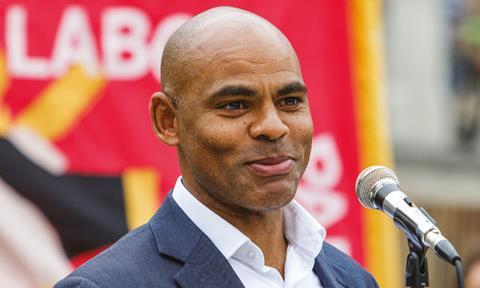
You were born and bred in Bristol. What was life like growing up?
I had a loving family but life was still quite tough. My mum was single; we didn’t have much money. It was the 1970s, so you had the National Front rolling around and racial fractures, which gave me a challenging childhood. I look back now, and realise I wasn’t happy a lot of the time. I wasn’t a child who was full of joy; I was very serious.
What was your first experience of Christianity?
My mum had grown up in Merthyr Tydfil so she always remembered going to chapels which were left around after the revival. I just always believed as a kid. I always had a sense of the infinite, and a person of God. That’s always been with me. I went to a Catholic primary school and I can remember standing up during Mass and saying I wanted to be a priest. I don’t think I necessarily did want that, but it was an early expression of faith.
Then at the age of about ten, Mum met some old friends who invited us to church, to what they called a crusade. I went up and they said: “You need Jesus in your life,” and as a kid, I thought Yes, of course you do, so I responded and ever since then, with various degrees of commitment and success on my part, I’ve been trying to be a disciple.
How has your faith changed over time?
I remember being quite literal and explicit about my faith early on. I think it’s much messier now.
There was this idea I’d come across at university through the Christian Union that to have certainty was the mark of faith. But I’m much more comfortable with complexity today. And risk. The parable of the talents says that in many ways for me. You don’t stand before God and get rewarded because you stood on the touchline and kept yourself clean. You get rewarded because you took a risk – the risk of the person who invested their talents was that they wouldn’t get a return. I suppose where I’ve got to with my faith is that it has to do something. It has to do something with my fallen self, in an imperfect country with an imperfect political party in a broken political system in a fallen world – somehow I’ve got to line all these things up and try to make something happen. And you know what? Some days it won’t happen. But my calling is not necessarily to win every time. My calling is to take the talents I’ve got in the face of the challenges and opportunities facing me and try to make good things happen for my fellow human beings.
I really began to develop an understanding of my Christianity when I studied my first Master’s in the politics of black America. I really took my theology from African American activists in the United States and the challenges of people like Martin Luther King to the white Church – who had too little to say on segregation. I suppose my sense of God and what a life of faith really is came through looking at the ferocity of that commitment to build a just country, and the absolute failure and betrayal of churches who not only failed to stand up for justice but actually had backed injustice and given it support and endorsement – and we see that today too.
You’ve been publicly critical of parts of the American evangelical church, especially the way white evangelicals endorsed Trump.
I struggled to see how so much of the evangelical Church in the United States was so opposed to Obama, but then would come out with the argument: “Well, God can use anyone so we’ll work with Trump.” And I will say, personally, that over recent years I’ve really been grappling with my faith and what it means. Not that I’m distant from God, but maybe it’s about grappling with who the Church is. And I think that one of the biggest sources of what I would call ‘anti-testimony’ is actually the political positioning of the Church that has rallied behind that reactionary, simplistic, alienating, dare I say it, angry-with-a-tinge-of-hate politics.
It is one year since Black Lives Matter protesters took down the statue of Edward Colston…
Took it down? That’s a very polite way of putting it.
OK. Tore it down. Is that better?
I’ve used the word ‘hauled’, but yes…
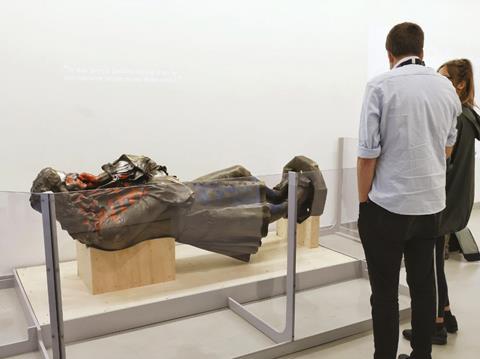
That moment made international headlines. At the time, you said that as the Mayor of Bristol, you would not condone criminal damage. But you also said it was an incredible and historic moment. You were conflicted, weren’t you?
Yeah, absolutely. But isn’t that the case in most of our realities, that we live in a complicated world? And in a complicated world, sometimes two things can be true at the same time. So my point was that, yeah, I cannot condone criminal damage, but do I lament the loss of a statue to someone who made their money from kidnapping, enslavement, killing, torture, exploitation? No, I don’t. Do I think there are better people we could be celebrating? Absolutely.
Remember, slavery was not just about people picking cotton and cutting sugarcane. There was also rape, torture, all the other things that went along with the plantation life, or the Middle Passage where 25 per cent of people were thrown overboard and sharks used to follow the ships, because they knew they’re gonna get something to eat. So you’ve got to think about the full horrors of what went on.
You’ve been encouraging Christians to get more involved in politics for a long time. How has that gone?
I was on a panel a few years ago and someone in the audience said: “I don’t want to join a political party because I wouldn’t agree with everything the leader said, and political parties are always fighting over points of minor difference and can’t get themselves organised.” And I said: “Well, to me, that just sounds like the Church! Do you agree with everything the leader says in the church? Does the Church get involved in conflict over minor points of theological difference that mean that they can’t reconcile? Do we have black churches and white churches and Asian churches in a faith that is ultimately about reconciliation?” And I think there’s a degree of humility that’s needed within the Church when it comes to pronouncements on the failures of political leadership.
What is the state of the Church in Bristol?
Bristol’s churches have always been involved in good city engagement, whether you’re talking about ministries to women in street prostitution or children’s services – we’ve got George Müller heritage in the city with the Müller Foundation. But what we’ve seen over recent years is the churches really beginning to step into city leadership, because I’ve offered that challenge.
Before I was mayor, I organised a meeting between the leader of the council and church leaders. And I said to the churches: “The political leader of the city has just asked you for help. You can’t go back and do prophetic preaching about a political system that’s failed when the political system has said: ‘Can you come and tell us how to do it?’”
I’ve said to the churches: “I want to hear from you. But on some issues, I want you to show me how you did it. Racial reconciliation, building community across gaps of wealth and power, poverty and powerlessness…” Because the Church can’t come and challenge political leaders to deliver on these issues if they haven’t been able to do it themselves. Most churches would say they have the power of the Spirit of God, right? So show me how you did it and then come and make an offer to the city. And from that, we’ve seen churches in Bristol stepping up, and that’s been a very real source of pride for me.
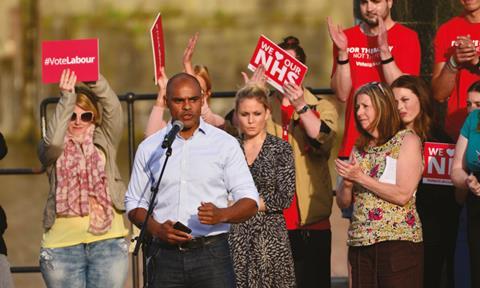
Has it been difficult being a Christian in public life?
I wouldn’t say so, to be honest. I mean, you get your trolls. Some rag started to call me “Reverend Rees” and all that type of stuff and said I was trying to introduce a theocracy. But so much of that trolling stuff is such nonsense. It just washes over you.
I don’t want to give you a non-Christian image here but, the way I see it is if there’s a 60-year-old man in his underpants late at night writing mean things to people on the internet, you just think: “What has your life come to?” [Laughs] I mean, you know, take up a hobby, pick up a frisbee, do something!
If I say that I grew up living with my mum, we spent time in a refuge, life was tough, there was a bit of domestic violence and all that type of stuff, and me having a sense of calling, purpose and meaning came from my belief in God and helped me escape the circumstances of my childhood, what business is it of yours to say: “No, you’re not allowed to believe that”? I’m saying my faith was important to me. It wasn’t a vehicle I attached myself to. It was a part of me that gave me resilience, and gave me a sense of purpose that I then pursued. So in many ways I’m quite belligerent about it. But judge me by the results. We’re trying to build affordable homes, feed kids, decarbonise the economy. We’re trying to build a mass transit system, trying to get more people of all faiths involved in public life. And I will say that interestingly, I had massive support from the mosques right from the beginning. The mosques were much more supportive of me in the first election than the churches.
Is that because churches in the UK don’t want to be politically partisan, because we’ve seen the damage that has done in the USA?
Yeah, it could be. And I think it’s a valid fear. It’s one I have too. I suppose…If I’m honest about it, I want churches to get involved in politics, as long as they vote for me. [Laughs] Don’t tweet that! I’m being jokey.
One of my conversations with the Church in Bristol has been, you know, we’ll stand before God one day and say: “Why did all these bad things happen?” God might say: “Well, I gave you a massive organisation. I gave you brains and I gave you a democracy. If you chose not to line all those things up to get the outcomes you’ve been praying for, then what can I do?”
To hear the full interview listen to Premier Christian Radio at 8pm on Saturday 7 August or download The Profile podcast
For more on Marvin Rees, watch Statue Wars: One Summer in Bristol, available now on BBC iPlayer














